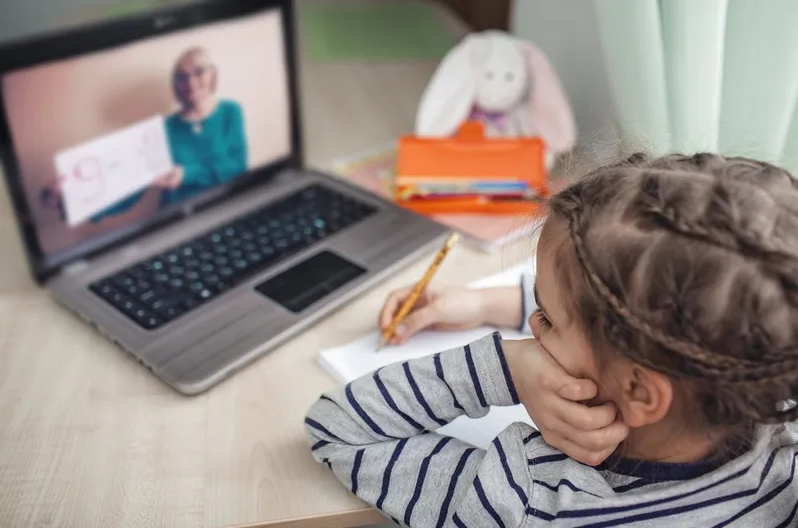And then there is the issue of the lack of socialization. Schools being online and most activities being canceled means less socialization, less interaction with friends, and less peer support. Social isolation can contribute to mental health issues like anxiety and depression, and the constant bad news about the pandemic and other issues makes things worse. In fact, a recent APA survey of older gen Z (ages 18-23) showed that 7 out of 10 are depressed. And 50% of teens felt uncertain about their future. Depression, anxiety, and chronic stress mean even less focus and less ability to multitask, which becomes a vicious cycle. Our kids and we, as parents, are in a tough time. Period.
- Give your kids a break. This is not the time to expect straight A’s or B’s — this is not a normal academic year. Our kids are faced with far more hurdles than usual. Instead, be there for them, show that you understand that these are difficult circumstances, have conversations about the news and COVID-19, and try to arrange virtual or outdoor playdates is its safe. What they need right now is support and hugs.
- Communicate with the school. The schools are having a difficult time too, as they are in uncharted waters. My daughter’s school had unrealistic expectations about assignments and tests, so I spoke to them about what we could do to help my daughter complete the assignments, and also about how they might be able to lower their expectations as well. Speaking with your child’s school can help — teamwork between parents and schools is more important now than ever.
- Give yourself a break. It’s a really tough time for parents as well. That’s why you need to take time for yourself. Schedule just 30 minutes for yourself every day and take a walk, or go to another room to relax. Take care of your health and sleep. If you are strong, the rest of the family will do better.
And remember, this is temporary. Someday these challenges will be behind us. We have gone through many tough situations in the past — whether it was a postwar nation, or a post 9/11 nation — and we have come out shining on the other side. We just need to focus on taking care of ourselves, our families, and others.
